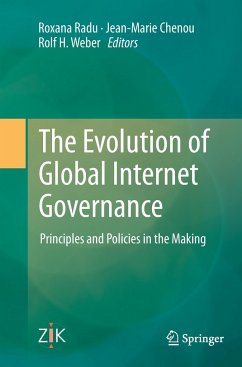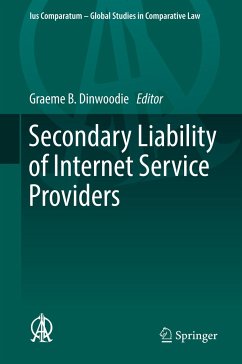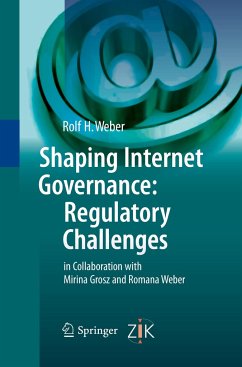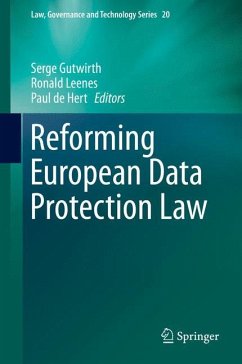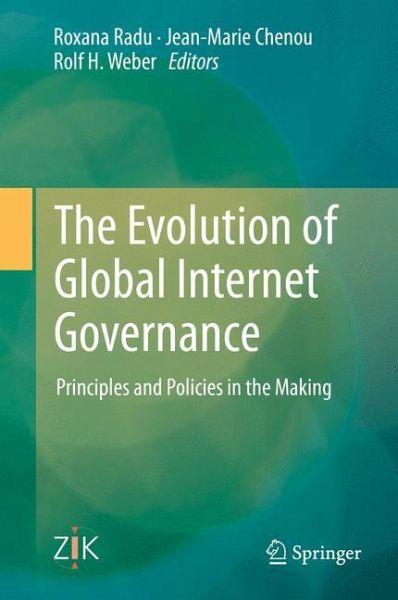
The Evolution of Global Internet Governance
Principles and Policies in the Making
Herausgegeben: Radu, Roxana; Chenou, Jean-Marie; Weber, Rolf H.

PAYBACK Punkte
38 °P sammeln!
The volume explores the consequences of recent events in global Internet policy and possible ways forward following the 2012 World Conference on International Telecommunications (WCIT-12). It offers expert views on transformations in governance, the future of multistakeholderism and the salience of cybersecurity. Based on the varied backgrounds of the contributors, the book provides an interdisciplinary perspective drawing on international relations, international law and communication studies. It addresses not only researchers interested in the evolution of new forms of transnational networke...
The volume explores the consequences of recent events in global Internet policy and possible ways forward following the 2012 World Conference on International Telecommunications (WCIT-12). It offers expert views on transformations in governance, the future of multistakeholderism and the salience of cybersecurity. Based on the varied backgrounds of the contributors, the book provides an interdisciplinary perspective drawing on international relations, international law and communication studies. It addresses not only researchers interested in the evolution of new forms of transnational networked governance, but also practitioners who wish to get a scholarly reflection on current regulatory developments. It notably provides firsthand accounts on the role of the WCIT-12 in the future of Internet governance.





